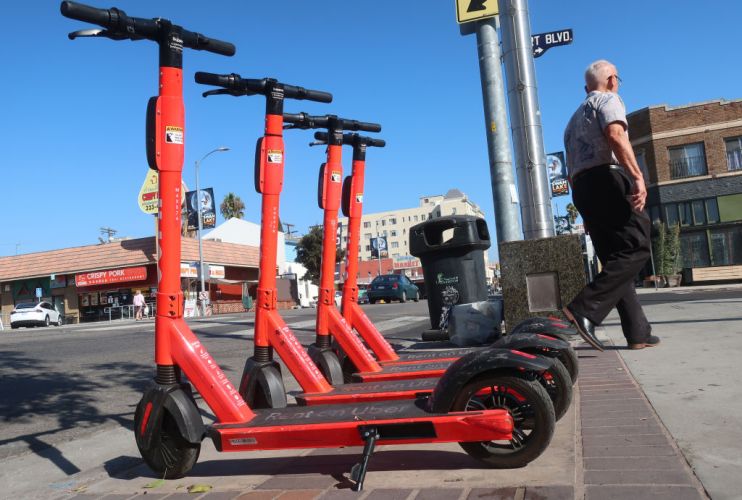Sales of e-scooters leap up over Christmas period despite UK ban

Sales of battery-powered e-scooters jumped over the festive period last year, despite there being a ban on using the vehicles on public roads.
Data collated by Swedish e-scooter startup Voi showed that sales of both e-bikes and e-scooters rose 96 per cent year on year in the three months to the start of January 2020. Meanwhile Essex-based manufacturer Micro Scooters said sales of its battery-powered scooters rose 50 per cent in 2019, while enquiries rose 70 per cent.
E-scooters are prohibited for use on roads and pavements in the UK, but are permitted on private land.
A government consultation is expected to launch next month in which ministers may legalise the scooters, with a list of provisions including a 15.5 miles per hour speed cap on devices and permitted use on roads and in cycle lanes.
“We welcome the UK government’s commitment to innovating transport and we will participate fully in the forthcoming consultation. However people are already buying and riding e-scooters, regardless of whether the law is changed,” said Voi chief executive Fredrik Hjelm.
“The government urgently needs to complete its review because until there is legislation, there is no way to insist on safety standards, higher quality scooters or reinforce good behaviour.”
Micro Scooters told the startup it expects sales of e-scooters to continue to rise, hitting the “tens of thousands” in the next 12 months. Research conducted by McKinsey values the e-scooter market at $150bn in Europe by 2030, and $700bn globally.
E-scooters are already legally permitted on public land in France, Spain, Germany and Scandinavia, as well as the US.
US e-scooter giant Bird has been operating a trial of its scooters in London’s Olympic Park since 2018. Voi told City A.M. last month that it does not intend to launch its scooters in the UK until the government approves the proposed legislation.
“Our experience in other major cities in Europe has shown us that where e-scooters are regulated well by local authorities that understand the popularity of this new form of transport, it encourages safe and responsible usage,” said Hjelm.
“It’s time for legislators to take action and begin to control a new form of transport that is already growing faster than authorities’ ability to restrict it.”